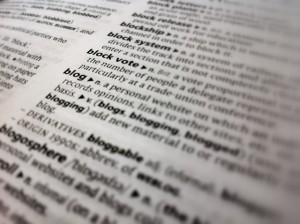The Oxford Dictionaries’ Word of the Year for 2016 was post-truth: “denoting circumstances in which objective facts are less influential in shaping public opinion than appeals to emotion and personal belief.”
Meanwhile, Merriam Webster led off its top 10 for 2016 with “surreal.” And now, of course, we already have a contender for 2017 recognition in “alternative facts.”
But let’s put all the surrealism and politics aside and contemplate two aspects of “alternative facts” pertaining to correctness.
Point 1. Is anything wrong with this sentence? We have two alternatives for our program.
Alternatives isn’t quite right because to have an alternative we need a starting point. For example, “We were thinking of a panel discussion, but now we have an alternative.” Our first idea was the starting point, and then we developed another idea.
So the distinction between options and alternatives is that options are merely choices while alternatives are additional choices after the first is established. Therefore, the sentence above should have been We have two options for our program.
Point 2. In business writing many folks like using the word data even when facts would be just as apt. But I use data sparingly because it has a dual identity. It can be interpreted as singular or plural. (Do you write The data suggests or The data suggest? The data is or The data are?)
Discussing this thorny singular/plural predicament further would make for an overly long blog and probably clarify little, so the main point is that we save ourselves time and trouble whenever we can use facts (or information or statistics or numbers) instead of data.
The moral of the story
Think twice before using alternatives. Don’t hesitate to use facts (and I mean that in more ways than one).
You can go to http://www.normfriedman.com/index.shtml to learn more about my workshops on writing in the workplace, individual coaching, editing, and handbook – 100+ Instant Writing Tips. Thank you.

